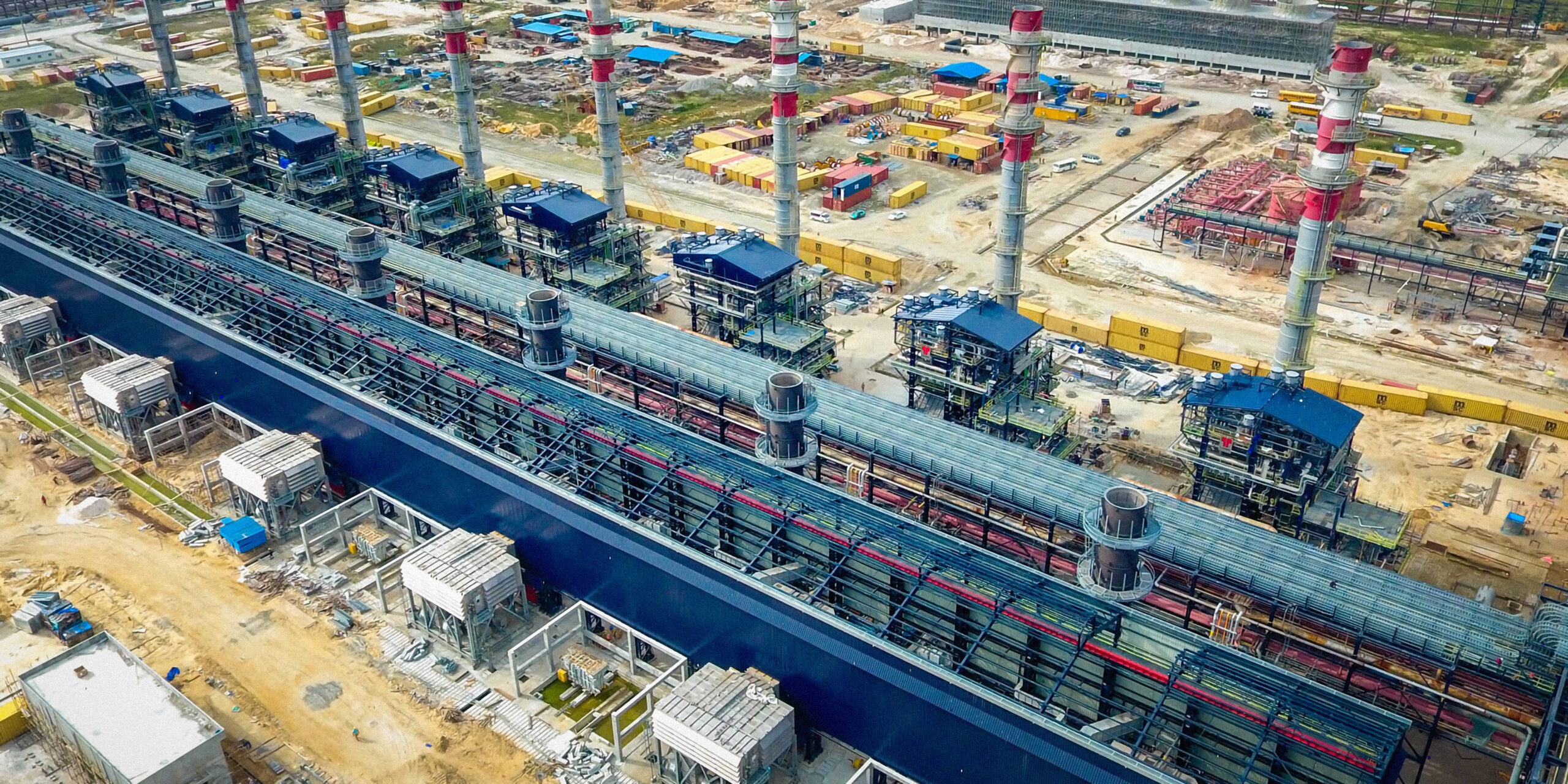Dangote Group’s Pursuit of Self-Reliance and Innovation in Nigeria
It is said that from small acorns great oaks grow, and that is true to the story of growth at Dangote Group (Dangote), founded by its namesake, Aliko Dangote.
Initially established in bulk commodity trading in the 1970’s, Dangote is a diversified and fully integrated conglomerate with vibrant operations across a wide range of sectors including cement, sugar, salt, condiments, packaging, energy, port operations, fertiliser, and now, Petroleum Refinery and Petrochemicals.
By investing its profits in its next venture to provide self-reliance in Nigeria, Dangote boasts:
The world’s largest flour milling capacity; under one ownership;
The world’s largest polypropylene bag manufacturing capacity;
The world’s second largest sugar refinery;
Africa’s largest pasta and noodle production capacity;
The largest cement producer in Africa.
Africa’s largest fertiliser production capacity;
Africa’s largest petrochemical production capacity;
And the World’s largest single train petroleum refinery
Thanks to its growing business streams designed to reduce the amount of import into Nigeria and Africa, Dangote is considered the second largest employer in the country after its government.
The business has almost single-handedly taken Nigeria to self-sufficiency in cement and is expanding rapidly across Africa, helping other countries achieve the same.
Striving for self-reliance in Nigeria, Dangote Group is embarking on ambitious plans to set up world-class projects in new realms such as agriculture, fertiliser and petroleum refinery and petrochemicals. In fact, this has turned the country from being the world’s largest or second largest cement importer in the world, to being an exporter of cement. Similarly, the country has turned from being an importer of fertiliser to an exporter of fertiliser.
Supporting the Group in its growth is Group Vice President Devakumar V. G. Edwin, who joined the business in 1991 to focus on the manufacturing arm of the business. “I’ve had the privilege of building and scaling every business pillar we’ve established in the last 33 years,” shared Devakumar, “it’s given me a unique opportunity to learn the complexities of each sector, and adapting to them”.
The Pursuit of Self Reliance
In a transformational move for the business, Dangote, overseen by Devakumar, inaugurated its flagship petrochemical complex in May 2023 in an investment of over US$19 billion.
The Dangote Petrochemical Complex consists of Dangote Oil Refinery and Petrochemical Plant, located in the Dangote Industries Free Zone in Ibeju-Lekki, Lagos, and covering a land area of approximately 2,735 hectares. The project boasts many opportunities for both Dangote and Nigeria, including supplying the entirety of Nigeria’s domestic fuel demand with just 46% of its production capacity.
“The remaining 54% of production can be exported, offering significant financial gains as well as putting both Nigeria and Dangote on the map for petrochemical production,” shared Devkumar.
Additionally, the project has developed 135,000 jobs in the region (both direct and indirect), helping to boost the local economy and financial stability for the employees. One of the bigger challenges for Dangote in the progression of the Dangote Petrochemical Complex was finding an EPC contractor which would be able to fully meet the demands of the project.
“We decided to create our own EPC company to meet our needs. This is something which has not been done by major industry players such as Shell, Exxon Mobil, Chevron or Total. So we took up the challenge and we were successful in executing this project,” said Devakumar.
And, true to Dangote form, the development of its EPC arm has seen it become one of the largest in terms of capacity, boasting 2,600 civil construction equipment, including 350 cranes. Lack of infrastructure in the region saw Dangote build its own port and road, granite quarry, ready-mix concrete facility, welding gases plant, etc..
“Understanding the complexities of the region meant we were able to foresee the challenges ahead and plan for them, something we believe would impact the speed at which an external contractor could complete the project,” explained Devakumar.
A business which is always one step ahead, Dangote had initially left availability at the facility to double its production capacity. However, as Devakumar highlighted, “global thinking is changing”.
“We have decided that we will utilise this potential expansion to reinvest into new business streams which are currently imported into the Sub Sahara,” explained Devakumar, “this includes linear alkyl benzene production which can be used in detergent, base oils to support the production of engine oil and lubricants, and polyethylene. These are an example of some of the great opportunities we have for future expansion once the refinery has been stabilised,” he continued,
At full production, the facility will process about 650,000 barrels of crude oil daily, transported via sub-sea pipelines from the SPMs which will receive the crude oil ships, whereas the natural gas will be sourced from the pipeline from the Niger Delta, to supply the fertiliser factory (which will produce three million tonnes per annum). 620 MW of electrical power is generated in this complex. The Dangote Group has already commenced the work for doubling the capacity of the fertiliser plant, to 6 million tonnes per annum.
A History of Early Adoption
An early adopter of sustainability, by bringing cement production in-country Dangote saved 1.9 million tonnes of c02 by eradicating shipping. Its oil and gas production will follow in the same footsteps.
Again, by producing oil and gas in-country, Dangote will help the country to see savings of 1.5 to two million tonnes of c02, which would have been produced by importing the products.
Additionally, the business has invested in a fleet of over 3000 new trucks which can travel long distances using CNG, a far less polluting fuel.
Further to this, Dangote has adopted the more stringent standards between the US EPA and the EU environmental regulations and, the refinery is designed to ensure that its products meet Euro 5 standards, providing consumers in Nigeria and beyond with environmentally friendly fuels.
“This means that our fuels will burn 22% less emissions in diesel vehicles and 56% less in petrol, creating a vast improvement,” shared Devakumar.
In terms of next steps of sustainability incorporation into the business, Devakumar highlighted that the business continually seeks out future technological advancements.
“The aviation industry is seeking ways to migrate into sustainable fuel, which is coming from vegetable oil with fat and waste. We may look to start producing some and blending into our existing fuel lines,” he explained.
The business is also an early adopter when it comes to digitisation, and has implemented many transformational technologies to aid the business in becoming more efficient.
Amongst its technologies, Dangote has implemented a fully automated tank farm management system which Devakumar highlighted is “the most advanced software on the market, which very few companies are using,”.
In addition, it uses an advanced system with gantry automation to monitor its trucks, and is taking steps to implement a robotic warehouse management system.
Taking its technology into another realm, Dangote will be using immersive virtual reality for its operator training, as well as digital twin simulation for operational management.
“Something I have witnessed in my many years in business with Dangote is that, if you’re not an early adopter, your business will be left behind,” added Devakumar.
This content is restricted to site members. If you are an existing user, please log in. New users may register below.

